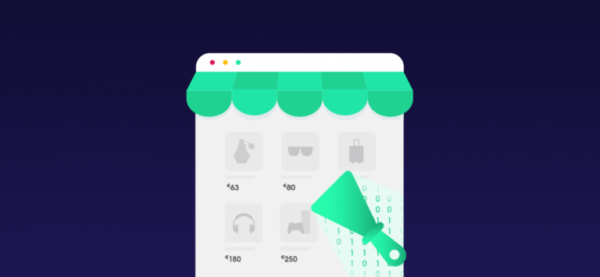Everyone connected to the internet is probably aware of the negative events of 2020 – particularly how COVID-19 drastically altered the economic landscape. While this issue is likely to go away with time, the effects of policy initiatives related to the matter will probably remain with us in the long term.
It’s not a secret that government policies restricting commerce and citizen movement resulted in an unprecedented number of businesses closing. Those that recognized the danger of the closures early on fast-tracked themselves online – whether they were ready or not. As a result, commercial activity on the internet rapidly increased, resulting in an increase in data. Since more data means better insights, those engaged in web scraping benefited from valuable information about the types of customers shopping online and their specific needs.
While the web scraping revolution is benefiting businesses of all sizes, it’s important to remember that traditional business fundamentals are still very important. I’m referring to time-tested practices associated with traditional marketing such as customer research, identifying new opportunities and competition monitoring.
Web scraping on its own is useful. Web scraping that supports a carefully crafted strategy will take a business to an entirely new level. This article gives you three tips on executing that successfully.
1. Web scraping identifies new opportunities
In the old days, new opportunities were identified by observing the market and talking to customers. Today we can augment that process many times over by analyzing data scraped from public sites on the internet.
Consider the changing nature of work after 2020 and the advent of the “stay at home” economy. This new style of work brought about a whole new set of needs to accommodate the remote worker. People left cities and set up home offices. New opportunities appeared, and many companies and freelancers took action and entered this new market with success.
Among the most successful were those that used web scraping to identify up and coming products among best-selling product lists and categories. In that sense, the internet is literally a treasure trove of data that contains valuable information such as keywords, rankings, new brands, upcoming products, and much more. New opportunities will always be available – the key is knowing where to look.
2. Web scraping identifies the most in-demand products
- Source: Oxylabs design team
It’s not a secret that e-commerce is much different from main street commerce. Businesses move much faster and price sensitivity is off the charts. As a result, most businesses probably learned quickly that stock selection is the key to success.
On top of that, budgets in 2020 were much lower than in previous years, and this trend is likely to continue. With fewer dollars chasing the same amount of goods, product selection is more important than ever because “needs” are replacing “wants” in a continuously shrinking economy.
The discovery of the most in-demand products can be revealed through a targeted web scraping strategy that is timely and able to pivot when market conditions change. Best-selling products, new categories, comments from customers and other publicly available information from users provides the insights needed to gauge the movement of the market.
Consider a large-scale clothing manufacturer or multinational e-commerce operation looking to leverage web scraping to find new trends. A strategy that monitors a set of target websites with specific keywords in a specific location could produce insights for creating products to market to another location – perhaps on the other side of the world.
Alternatively, a time-based strategy can be used to extract information on trends that are emerging along with others that are losing popularity. This can be particularly helpful for cross-border companies that operate throughout the world.
3. Web scraping takes competition monitoring to an entirely new level
An interesting question to ask a business owner is: “Who knows your business the best?”
Most may answer that they understand their business better than anyone, but this may not be the case. Often many businesses lag because their competitors understand their business better.
The most successful competitors find their opposition and study them intensely. Web scraping can augment those efforts by unlocking valuable data on competitor’s moves through key insights on their catalog, best-selling products, inventory/stock information, shipping policies, and much more.
The benefits of extracting data don’t stop at successful product marketing or competition monitoring. Web scraping is also essential to executing a dynamic pricing strategy that allows for prices to change according to various market conditions. This is accomplished by monitoring demand and supply factors to arrive at the most profit-maximizing price in order to gain the highest amount of sales possible.
Wrapping Up
New entrants and seasoned players to the e-commerce game will find it more competitive than ever before. That doesn’t mean we should focus solely on new technology. Basic business strategies will always prevail and web scraping takes those efforts to another level and makes them work harder for you.
There has never been a more critical time to leverage the power of web scraping. The trove of data on the internet is waiting to be unlocked through professional web scraping services or ready-to-use solutions that help businesses move beyond surviving to increased levels of success in the future.
However, web scraping is still relatively new and fraught with various challenges, including its legality. We gathered a panel of legal professionals for a roundtable discussion to discuss these issues on a webinar scheduled for March 4, 2021.
We will be discussing about the difference in regulations across the world and everyone will get to see what lawyers think about the state of the industry and where it’s headed. Click here to reserve your spot.
